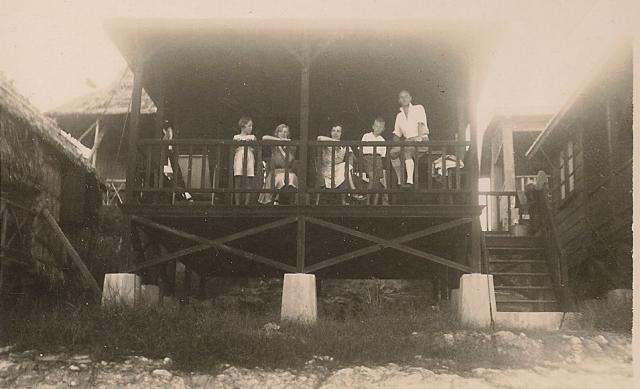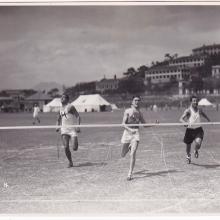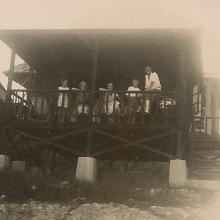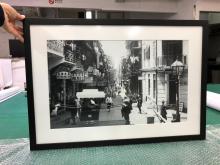This is one of two nearly identical shots: one smiling; one unsmiling. I've cropped off the inscription on the top "Stanley Beach 1934". On the back my Warren cousin has written "Our matshed". It looks quite a solid construction for a matshed. The one next to it looks more of a classic matshed. I wonder if you built/ bought your own matshed, or rented one. The group consists of Cicely Warren and her children and another couple. Sorry about the quality of the photo.
Jill





Comments
Like :)
LIke
Re: Huts at beaches
Hi there,
These huts are quite populars until the 1970's or 1980's. By the 1960's most of them become concrete structures littering along Middle Bay, South Bay & Standley Main Beach. They were opened to bidding for organizations for use for a certain period of time.
Some foundations of such huts could still be found in the Middle Bay area. There are still a few of these concrete structures left in Stanley. The rest is history and are mostly gone.
More huts
Thanks to Henry Ching for sending this photo of his family's beach hut at Stanley:
He writes:
I was interested in seeing the photos of the Warren matshed at Stanley Main Beach.
Yes, before the war we knew the beach simply as Stanley Beach. There were two rows of “matsheds” running the length of the beach, and I believe they were all privately owned by individuals or by clubs or other organisations. They were, as you point out, quite substantial structures of timber or brick, so matshed was something of a misnomer.
Our matshed, shown in the photo, was in the back row, at the northern end of the beach. We were not quite the end – there was one other next to us at the very end which belonged to the Maryknoll Fathers. There was an unusually large space between us, and my father planted three or four palm trees there – I believe one survived for many years, perhaps still there?
The rowing boat lying on the ground at the left of the photo belonged to my father. The routine on arrival was to round up enough manpower to carry it across the beach down to the water.
Late in 1941 barbed wire was strung along the beach above the high tide mark, with just a few openings to allow people to get to the water. It was no longer an enjoyable place to spend a Sunday, and we did not go back there after the war.
Matshed architecture
Thanks everyone for the interesting comments on the changing shape of Stanley beach matsheds. The 1930s style does indeed seem much more permanent in intention than the earlier ones, as in http://gwulo.com/atom/23100 - a late 1920s version. Was there a worry about the older ones being a fire hazard, I wonder.
Jill